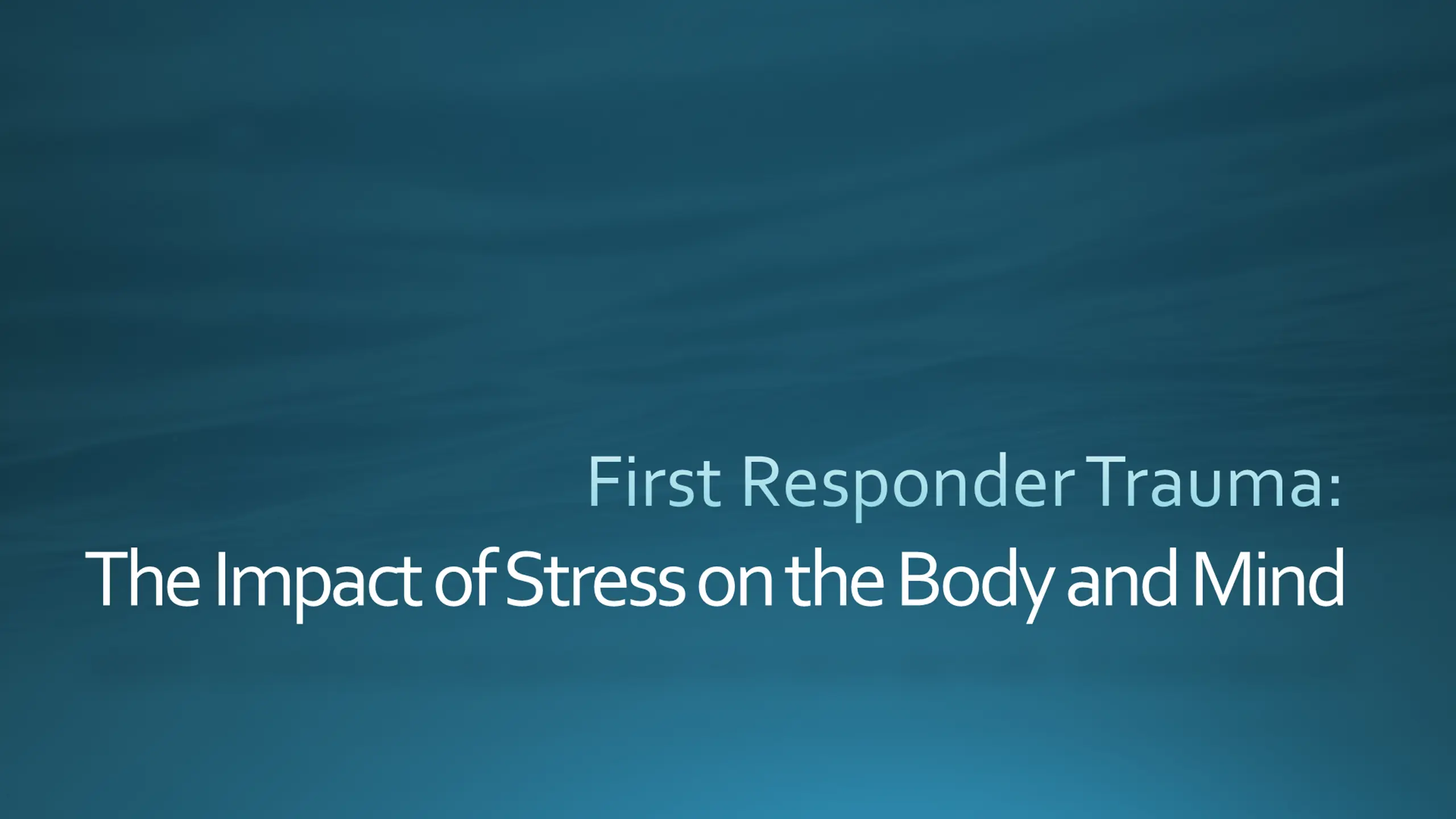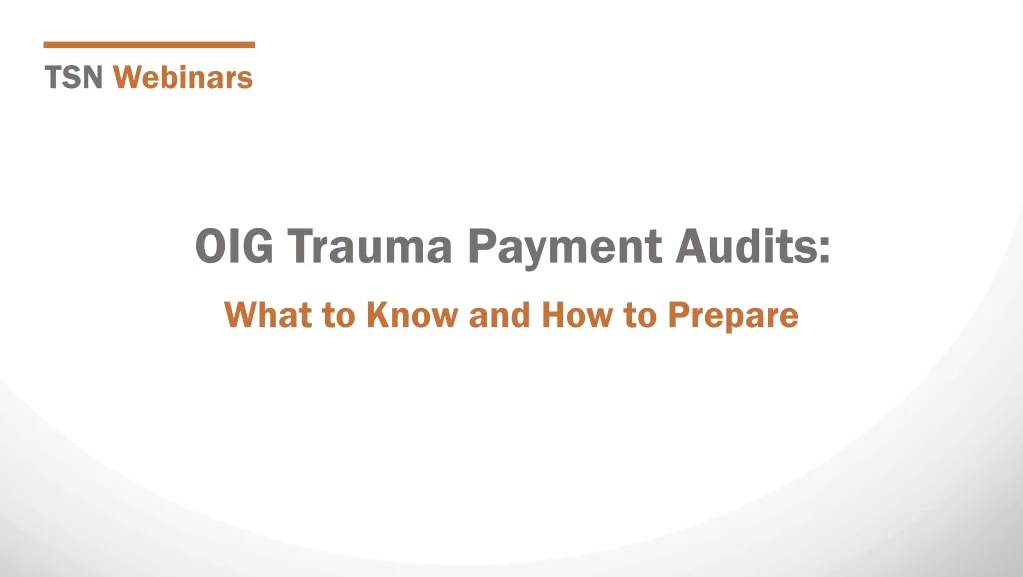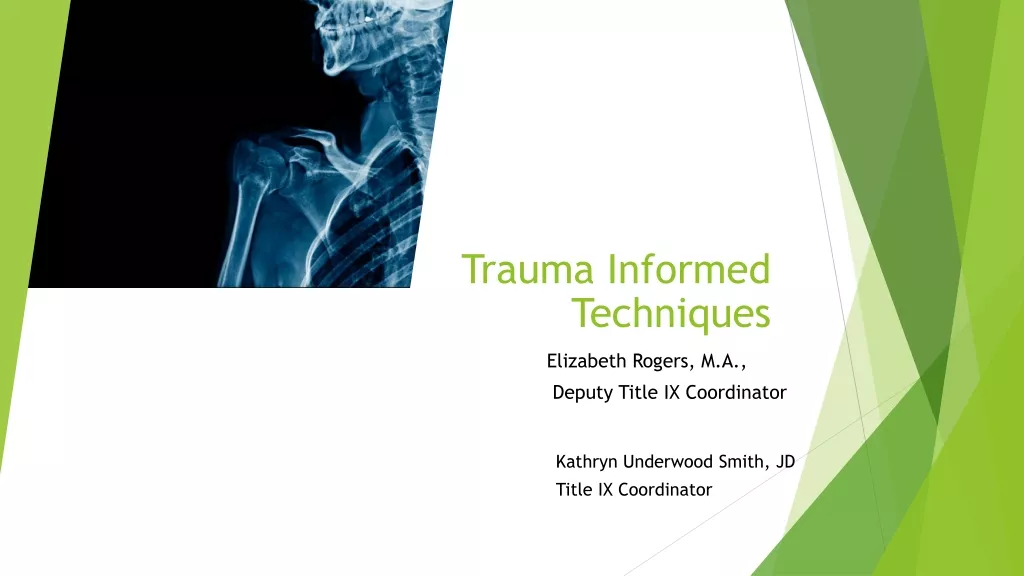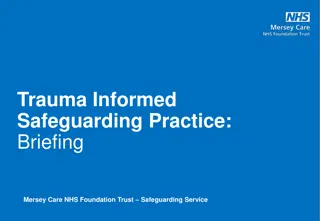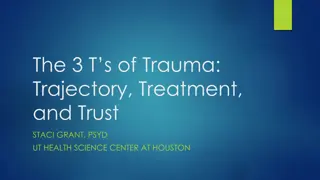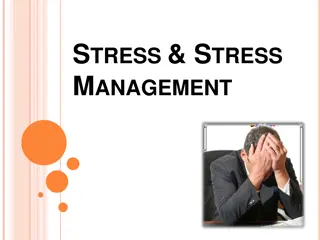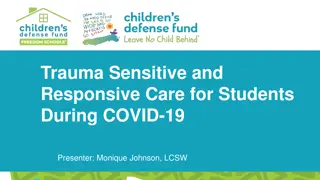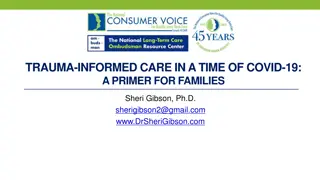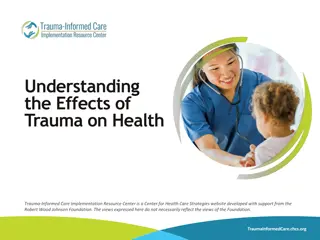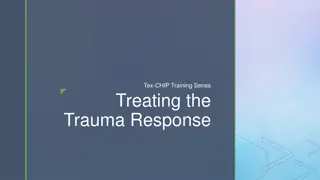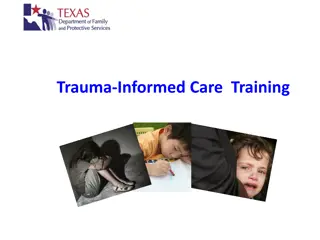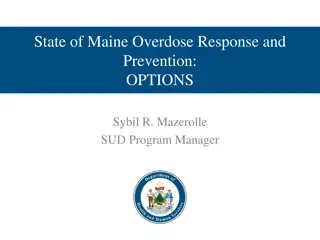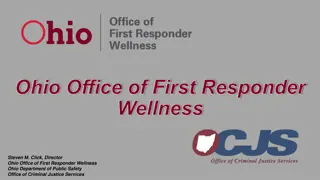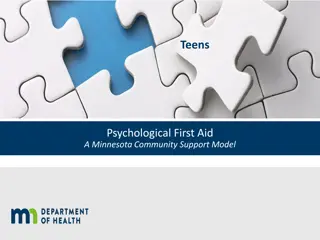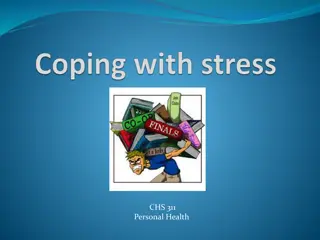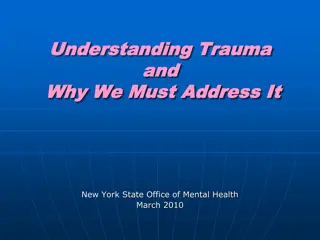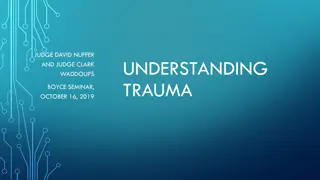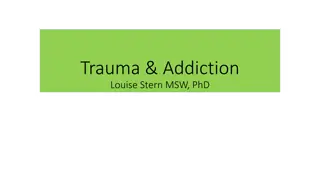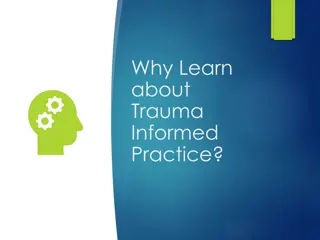First Responder Trauma: Understanding Stress Effects
Explore the impact of stress on body and mind, from acute to chronic stress types, including critical incident stress and PTSD. Learn to recognize and manage stress for mental and physical well-being.
Download Presentation

Please find below an Image/Link to download the presentation.
The content on the website is provided AS IS for your information and personal use only. It may not be sold, licensed, or shared on other websites without obtaining consent from the author.If you encounter any issues during the download, it is possible that the publisher has removed the file from their server.
You are allowed to download the files provided on this website for personal or commercial use, subject to the condition that they are used lawfully. All files are the property of their respective owners.
The content on the website is provided AS IS for your information and personal use only. It may not be sold, licensed, or shared on other websites without obtaining consent from the author.
E N D
Presentation Transcript
First Responder Trauma: The Impact of Stress on the Body and Mind
What is Stress? It is a natural reaction from our brain to our bodies Hormones, like epinephrine and cortisol, are released to create a physiological response We NEED stress! It helps us overcome challenges and create opportunities BUT, if it is unmanaged, it can negatively impact our physical and mental well being
Whats Your Stress Level? Activity: Holmes-Rahe Life Stress Inventory
Is short term stress with a quick resolution. This is the type of stress our body handles the best. If we are faced with something that requires us to FIGHT or FLEE (FIGHT or FLIGHT) our bodies are ready to take it on. Acute Stress: Example: a threatening dog- the mind and body gear up with the fight or flight response to handle this stress quickly then settles down.
Is prolonged unrelieved stress also called cumulative stress. Prolonged unrelieved wear and tear results from too many demands Chronic Stress: Example: BURNOUT when a person loses energy and interest because of unrelieved stress.
Daily stress can be acute or chronic Stress is individual and we all have different tolerances. Example: driving in traffic. Stress can also be an individual stressor or an accumulation of many things. Acute & Chronic Stress
Group Discussion List 5 internal stressors of the job List 5 external stressors to the agency
Critical Incident Stress It is incident specific. This is heavy-duty stress that causes psychological and physical discomfort for 2 days to 1 month. CIS is considered normal response to an abnormal extreme incident. Events such as- Working a gruesome accident Involvement in a use of force incident Involvement in a shooting Recovering the body of a child
Post Traumatic Stress Disorder PTSD creates major distress & long- lasting disruptive changes in a person's life. This is not normal stress and may need professional help. PTSD is similar to CIS, but symptoms are prolonged past 1 month. The person is unable to make the event part of their past keeping it part of their present.
Symptoms Intrusion: Flashbacks Intrusive thoughts Nightmares Reliving the event Mood/Cognition Changes: Loss of memory Guilt Blaming self or others Loss of interest in activities Avoidance: Avoiding people/places Avoiding thoughts/reminders Avoiding talking about it Arousal: Hypervigilance Anger outbursts/irritability Difficulty concentrating Jumpy/uneasy
-The command center Central Nervous System -Brain & spinal cord The Nervous System -Fight or Flight -Activates biochemical changes to the mind & body preparing response to a threat Sympathetic Nervous System - Rest and Digest -Controls body functions when at rest Parasympathetic Nervous System -Returns the body systems to normal activity
Activating the Stress Cocktail The Sympathetic Nervous System activates a stress response full of hormones, causing an increase in- Heart rate Blood pressure Breathing Sweating Oxygen Consumption Muscle Tension Alertness
Activating the Stress Cocktail This leads to changes in blood flow- Blood is shunted away from non-critical organs in order to increase oxygen and energy to the heart, skeletal muscles, and the brain Clotting factors change to allow blood to clot quicker in case of a wound Changes happen to senses and perception- Senses related to threat become more acute Depth perception reduced Pupils dilate Changes in hearing, vision and time perception
Activating the Stress Cocktail Parasympathetic Nervous System is turned off or reduced- Digestion slows or stops as blood is needed elsewhere Immune system is compromised Non-critical systems are shut down Tissue building and repairing stops
Activating the Stress Cocktail If the SNS is constantly in high alert, and the PNS is shut off for extended periods of time, symptoms of chronic stress will occur- High blood pressure Irritability/hostility Heart disease Increased risk of cancer Impaired sleeping Impaired sexual/reproductive functioning Skin disorders **We can control smooth transitioning between the SNS and PNS by actively managing our stress**
Symptoms of Stress Response Cognitive/Emotional Physical Social Impaired decision making Difficulty focusing/staying on task Memory problems Rapid mood changes Irritable Argumentative Blaming others Depression Increased alcohol use Suicide Digestive disorders Headaches High blood pressure Disrupted sleep Excessive illness Loss/increased appetite Emotional distancing Relationship problems Withdrawn Lost interest in hobbies Isolation
Continuous Activations Chronic stress can damage the brain by killing cells in the hippocampus Prolonged states of hypervigilance- Overestimation of threats Extreme avoidance of perceived threats Increased startle response Interfere with sleep; causing fatigue, loss of concentration, inability to focus Feelings of paranoia Leading to changes in behaviors
Its Not Just in Your Head
Studies: First Responders First 2020 90% of first responders report they have been exposed to trauma on the job Estimated 1/3 of emergency responders will eventually be diagnosed with a mental health disorder 1/3 of firefighters reported alcohol abuse 18% of male officers and 16% of female officers reported they had negative consequences due to alcohol consumption
Female firefighters- 40% reported binge drinking that month, 16.5% of them screened positive for problem drinking behaviors Studies: Ruderman White Paper-Mental Health and Suicide of First Responders, 2018 Depression in firefighters- out of 112, 11% found with depression (general population 6.7%). Out of 1,000 firefighters across the U.S., 46.8% reported imagining or thinking about suicide at least one time in their career Alcohol was present in over 85% of police officer suicides
10 Fatal Factors of First Responder Suicide Interpersonal relationship issues Access to firearms Alcohol/substance abuse Medical issues Nearing retirement Cumulative stress and trauma Being under investigation Mental health concerns Sleep disturbances Other major life events Studies: Ruderman White Paper Update 2022
Retirees Law Enforcement Fire/EMS 2018-2022: Average of 30 retired officers die by suicide per year (Blue Help, 2022) 2018-2022: Average of 1.5 retired FF/EMT die by suicide per year Fire Fighter life expectancy is 10 years less than the average person due to toxic chemicals and protective equipment (PBS, 2022) Most LE officers die within 5-6 years of their retirement (DOJ, 2021) Life expectancy is 12-15 years less than the average person (DOJ, 2021)
What Are/Arent You Doing? Activity: Self-Care Bingo
Texas SB 1359-requiring paid Mental Health Leave Texas SB 64- requiring state peer support network TLEPN Share Resources! Law Enforcement Mental Health and Wellness Act https://cops.usdoj.gov/lemhwaresourc es American Warrior Association https://awa-usa.org/ LEMIT Post Critical Incident Seminar http://www.lemitonline.org/
The Blue Bow Foundation https://www.bluebow.org/#/ UTHealth Trauma & Resilience Center https://med.uth.edu/psychiatry/r esearch/centers/trauma-and- resilience-center/ Share Resources! ASIST Suicide Prevention Training TacMobility- Resilience Training https://tacmobility.org/
Thank You Deputy Theodore Deaver 832-361-0833 Theodore.deaver@fortbendcountytx.gov Kayla Elwood Agudo 832-265-4651 Kayla.elwood2@fortbendcountytx.gov
